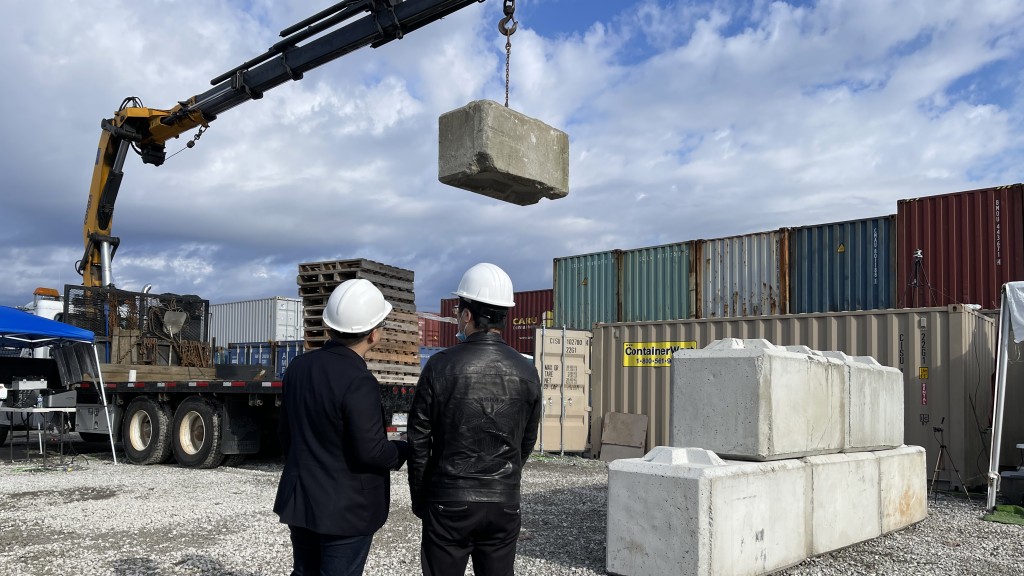
The next evolution of construction sites is on the horizon, as shown during a recent demonstration using smart robots, drones, and AI technology by a team from the University of British Columbia.
A group from UBC's Smart Structures Lab, led by structural engineering professor Dr. Tony Yang, has developed smart construction robots that can perform basic tasks usually performed by workers, such as lifting and moving items around a job site, autonomously transporting materials, and monitoring sites for safety issues.
A recent demonstration on Mitchell Island in Richmond, B.C. demonstrated the concept. Aerial drones fitted with cameras captured details that were then used to create a "digital twin" - a simulation of the site. AI-equipped cranes and forklifts used information from the digital twin to move construction materials such as beams and columns around the actual site, navigating around obstacles without needing a human operator.
"Our smart construction robots are able to recognize objects, performing detailed scans of structural components for quality assurance," said Yang. "They can precisely place objects on site and check against a computer model to ensure they're building according to plan. They can make autonomous decisions such as navigating around obstacles or instantly stopping work to protect a worker who is in danger."
Yang is currently working with a number of B.C. construction companies to find opportunities where smart robots could be used in commercial building projects. He stated that smart robots will have a larger role to play in speeding up construction times, increasing worker safety, and easing labour shortages in the industry.
"Our made-in-Canada technology is ready to deploy now and can be quickly scaled up, helping to elevate Canadian construction and making us more competitive on the global stage," Yang said.


